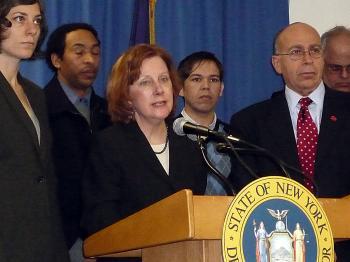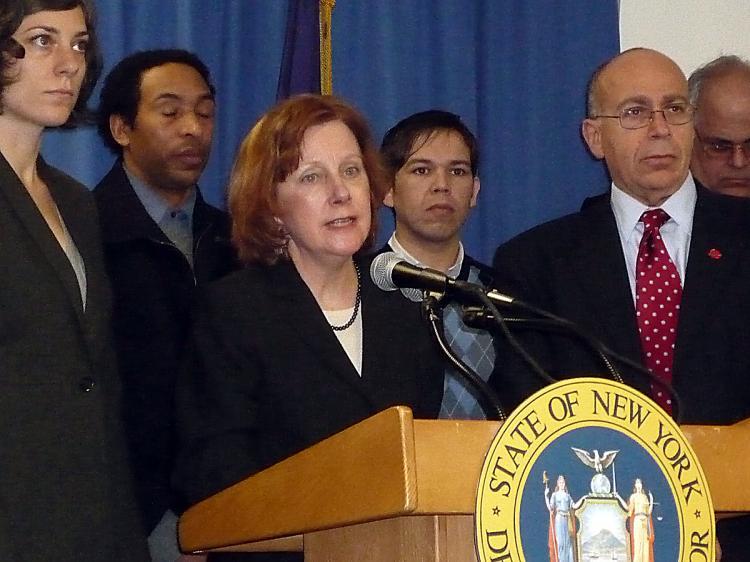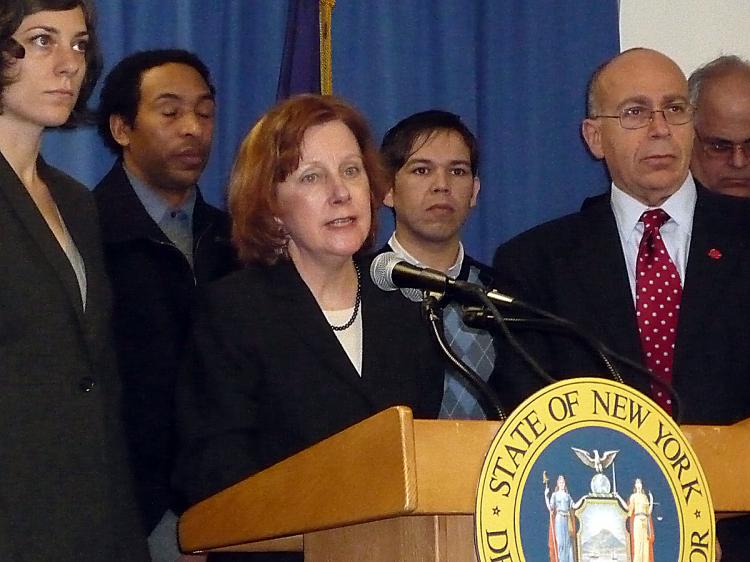“We hope that the more employees know about labor laws, the more they will be willing to report violations,” said State labor commissioner M. Patricia Smith at a press conference Monday.
To battle wage law violations on a grassroots level, the Department will train community advocacy volunteers to educate workers and employers about their rights and obligations. They will work within a geographic area or industry to observe workplaces, talk to workers and employers, and distribute informational brochures in community settings such as churches and salons.
Six community groups will begin the pilot program, called New York Wage Watch. The beginning goal is to have each group reach out to 1,000 employers each quarter. If in their travels these volunteers see suspicious labor practices, they are obligated to report their findings to the Labor Department.
In tough economic times, some businesses illegally dock wages to “cut corners,” said Smith. Many times this means the withholding of tips and wages, sub-minimum wages, no overtime pay, and inadequate meal hours. But oftentimes workers don’t report the crime for fear of losing their much-needed job. Some workers keep mum because of a language barrier or their immigration status.
The program is meant to foster a safe environment for reporting wage and hour law violations by making sure workers are clear on their entitlements under the law, and what services could be provided to them to protect their rights.
Smith acknowledges that confronting hostile employers is not work for the faint of heart. That’s why the pilot program will begin with community advocates who are experienced in dealing with wage justice issues. Groups such as Make the Road New York, Long Island Workplace Project, and the Retail Workers and Department Stores Union have been working consistently in their communities to advocate on behalf of wage theft victims. In July, Make the Road was able to secure through legal actions a total of $1,092,000 in back wages owed by 16 retail employers on Knickerbocker Ave., Brooklyn.
To train more volunteers, the Department will hold day trainings in wage law, common local problems, and how to approach employers. Training materials and community outreach literature will be language-specific to the target communities.
New York Wage Watch is based on the model of the neighborhood crime watch programs instituted in communities across the country. When the neighborhood watch model was piloted in the 1960s, it began in Queens. Now New York will lead again in applying the such a model to enforcing wage laws. If proven successful, the Department will extend the program to the entire city, State, and recommend it to be adopted nationally.
More information about the program can be obtained by emailing [email protected] or calling 1-888-52-LABOR.
A Brief Lesson in Labor Law
-Minimum wage in New York State is currently $7.15 per hour and will rise to $7.25 per hour in July.
-For every hour over 40 worked in a week, the hourly rate is 150% of a worker’s regular rate.
-Managers, owners, and anyone not directly serving the customer is not entitled to a worker’s tips.
-Timely payment should be expected. Manual workers should be paid once a week and clerical workers should be paid twice a month.
-It is the employer’s responsibility to keep detailed records of workers’ hours, though the Department encourages workers to keep record as well.
-Minimum wage and overtime laws also apply to undocumented workers.
-It is illegal for the employer to punish the employee for complaining about violations or reporting conditions to the Labor Department.
Source: New York Department of Labor







